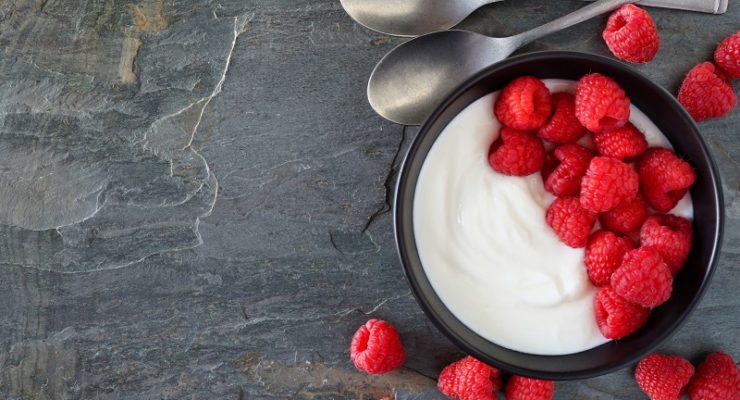Gut health—we hear all about it. But did you know your gut health can affect your weight loss?
According to PLOS Biology, scientists estimate that you’re carrying around 38 trillion bacteria, which is 800 billion more bacterial cells than you have human cells. It’s so much bacteria, in fact, that it weighs about .44 pounds in the average male. But that’s not the only way your microbiome—a fancy word for the bacteria living inside you—affects your weight. You’ve probably heard that having “good” bacteria can help you stay regular, but the bugs in your body can affect your health—and your weight—in other ways, too.
Here’s what you need to know about your gut health:
 Gut bacteria affects how well your diet works.
Gut bacteria affects how well your diet works.
You may have heard that the more fiber you eat, the leaner you’ll be: In fact, one study published in Science Daily found that for every 10 grams of fiber you eat each day, your belly fat could be reduced by four percent.
Here’s the funny thing: Your body can’t digest most of the fiber you eat. But, according to the review Cell, bacteria can—and the type of bacteria that feed on fiber could be the reason this nutrient helps you lose weight. One of these fiber-feeding bacteria is called Prevotella. In one study from 2018, published in the International Journal of Obesity, dieters with more of this bug in their biome lost five more pounds when dieting than participants with less of this bacteria swimming in their systems. And Prevotella is found in higher concentrations in people who eat high-fiber diets.
 Gut bacteria can make you feel full—or hungry.
Gut bacteria can make you feel full—or hungry.
When we think about controlling hunger, we often talk about the signals our gut sends to our brain—your stomach tells your mind that you’re hungry, and you get peckish. But, according to Nature Reviews: Endocrinology, some scientists say that the relationship can also be thought of as being between your gut bacteria and your brain.
If your gut bacteria have more of their kind of food to eat, it could mean you’re less hungry. When scientists in a study published in The American Journal of Clinical Nutrition gave study participants a supplementation of prebiotics—nutrients like fiber that bacteria feed on—their guts produced more of a hormone called peptide YY, which is associated with feelings of fullness. Those participants giving their gut biome something to eat wanted less to eat—they had less hunger than those who didn’t consume the prebiotics.
 Okay, so what can I do to improve my gut health?
Okay, so what can I do to improve my gut health?
All this science is interesting, but this is the important part: How you can make your gut’s bacteria help you be healthier and lose more weight.
Here’s four things to do:
- Talk to your doctor about safe supplementation.
Don’t just ask about probiotics, but about prebiotics—these are foods, nutrients, and supplements that “good” gut bacteria like to eat, providing fuel for the bacteria so they can bloom in your belly. And, according to Diabetologia, they can help make things better: Studies have found that prebiotic supplementation has helped reduce diabetes, improves feelings of fullness and improved glucose response after meals. - Eat lots of soluble and insoluble fiber.
Fiber comes in two types: Soluble fiber, the kind found in oats, blueberries and beans, can help keep your blood sugar stable. Insoluble fiber, found in vegetables, keeps your intestines moving, and is associated with better bowel movements. Both kinds will help your belly bacteria reach a good balance: Vegetables help improve the overall diversity of bacteria in your gut, while whole grains and other soluble fibers give bacteria something to snack on—which can help you lose weight, according to Molecular Metabolism. - Eat fermented foods.
Yep, yogurt—but also kefir, sauerkraut and other fermented foods can help increase the diversity of bacteria in your intestines. - Avoid too much sugar.
Not only is sugar high in calories and low on nutrients, but it can also upset the balance in your gut. The more sugar you eat, the more bacteria your body produces that can process the sugar—meaning more of this “bad” bacteria and less of the “good” stuff. And that bad stuff, according to Cell Reports, increases your susceptibility to metabolic disease—like high blood pressure, diabetes and obesity. Deny those bad bacteria their food source! Trade in added sugars for natural sugars from fruit, and watch your good bacteria bloom—and your weight loss goals blossom.
The post Gut Health and Weight Loss: Everything You Need to Know appeared first on The Leaf.
from The Leaf https://ift.tt/2ZTZJCa
via Myfit





0 Comments